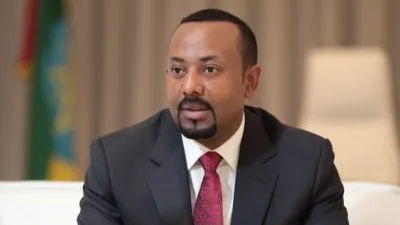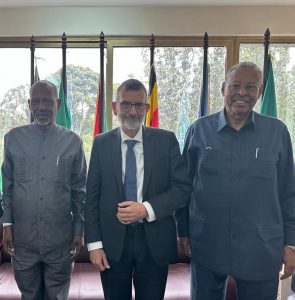The United Nations on Tuesday pleaded with Ethiopia to allow aid for long-standing refugee camps in the northern Tigray region, where nearly 100,000 people from neighbouring Eritrea are thought to have run out of food.
The appeal came as Tigray’s dissident leaders claimed fresh fighting was taking place elsewhere in the region, potentially undercutting Prime Minister Abiy Ahmed’s claim to have ended the conflict.
It also came as some Tigray residents reported that communications had been partially restored after a lengthy blackout.
Abiy, winner of last year’s Nobel Peace Prize, announced military operations in Tigray on November 4, a move he said was a response to attacks by the regional ruling party, the Tigray People’s Liberation Front (TPLF), against federal military camps.
After more than three weeks of fighting that left thousands dead and prompted tens of thousands to flee to neighbouring Sudan, Abiy declared victory on Saturday night — though the TPLF vowed to fight on.
Since the conflict started, the UN refugee agency UNHCR has had no humanitarian access to four camps in Tigray which have been in place for more than a decade, sheltering some 96,000 Eritrean refugees.
Addressing reporters in Geneva on Tuesday, UNHCR spokesman Babar Baloch said the Eritrean refugees were in “desperate need” of help.
“Concerns are growing by the hour,” Baloch said.Food stocks on hand for the refugees, many of whom fled Eritrea’s authoritarian government, were not expected to last beyond the start of this week.
“The camps will have now run out of food supplies, making hunger and malnutrition a real danger — a warning we have been issuing since the conflict began,” Baloch said.
“UNHCR appeals to the government of Ethiopia to continue to fulfil its responsibility in hosting and protecting Eritrean refugees and allow humanitarians to access people who are now desperately in need.”
Ethiopia’s Agency for Refugee and Returnee Affairs believes there is a “buffer” of food supplies that would last through the week, deputy director-general Eyob Awoke told AFP on Tuesday.
But the agency has not had contact with the camps because of the communications outage and has yet to visit them, Eyob said.
UNHCR’s Baloch also voiced alarm at unconfirmed reports of attacks, abductions and forced recruitment at the camp.
These abuses were allegedly carried out by Eritrean soldiers fighting alongside Ethiopian federal troops. Ethiopia has denied enlisting Eritrean military support in the conflict.
Eyob said his agency did not have “detailed information” about the reported attacks.
Meanwhile in Sudan, nearly 46,000 refugees fleeing the Ethiopian conflict have now been registered, Baloch said, including more than 2,500 on Friday.
He said newly arrived refugees had reported seeing more checkpoints on roads from Ethiopia to Sudan, forcing them to take other routes.
Abiy has resisted calls for mediation in the conflict, saying TPLF leaders need to be disarmed and apprehended.
Tigrayan head Debretsion Gebremichael told AFP on Monday that his forces would continue to fight “as long as these invaders are on our land”.
The regional capital, Mekele, has been under federal control since Saturday evening.
Debretsion said that fighting persisted Tuesday in at least three locations, two of which were “around Mekele” and another near the town of Wukro, 50 kilometres (31 miles) north.
The communications blackout has made it impossible to verify claims from both sides on how the fighting is going.
But on Tuesday AFP was able to contact residents of three cities in western Tigray, indicating communications had been at least partially restored.
“Yes, the phone network and mobile data is back since Sunday afternoon at 5pm, but only for the towns from Gondar to Humera,” said Humera resident Tewodros Gebreselassie.
“Some families who were separated during the war are connected again. It’s solving many problems. However, it’s still a problem for the areas that don’t have connection. And we are still missing electricity.”
A spokesman for Ethio Telecom, Ethiopia’s monopoly telecoms provider, said he could not provide information on service in Tigray.
A spokeswoman for Abiy’s office did not respond to a request for comment.
Also on Tuesday, Abiy’s government announced that a senior member of the TPLF and former speaker of the upper house of parliament “surrendered to federal forces”.
Keria Ibrahim resigned from her position in June after lawmakers approved postponing national elections because of the coronavirus pandemic.
The TPLF maintained the move was unjustified and that Abiy would become an illegitimate ruler, heightening tensions that eventually spilled over into armed conflict.
rcb/dl







